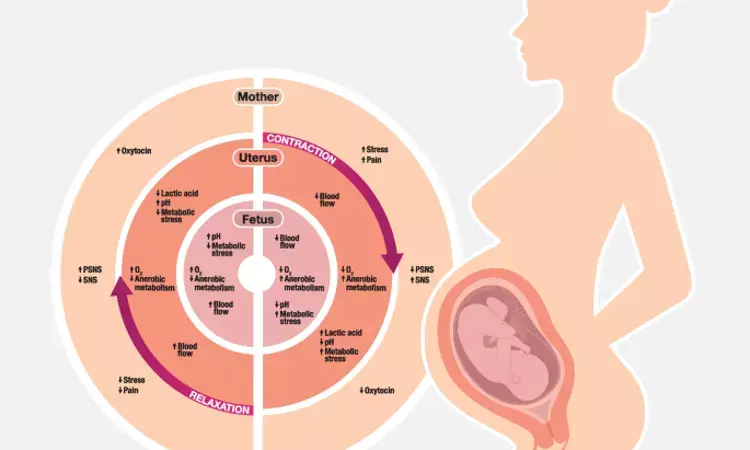- Home
- Medical news & Guidelines
- Anesthesiology
- Cardiology and CTVS
- Critical Care
- Dentistry
- Dermatology
- Diabetes and Endocrinology
- ENT
- Gastroenterology
- Medicine
- Nephrology
- Neurology
- Obstretics-Gynaecology
- Oncology
- Ophthalmology
- Orthopaedics
- Pediatrics-Neonatology
- Psychiatry
- Pulmonology
- Radiology
- Surgery
- Urology
- Laboratory Medicine
- Diet
- Nursing
- Paramedical
- Physiotherapy
- Health news
- Fact Check
- Bone Health Fact Check
- Brain Health Fact Check
- Cancer Related Fact Check
- Child Care Fact Check
- Dental and oral health fact check
- Diabetes and metabolic health fact check
- Diet and Nutrition Fact Check
- Eye and ENT Care Fact Check
- Fitness fact check
- Gut health fact check
- Heart health fact check
- Kidney health fact check
- Medical education fact check
- Men's health fact check
- Respiratory fact check
- Skin and hair care fact check
- Vaccine and Immunization fact check
- Women's health fact check
- AYUSH
- State News
- Andaman and Nicobar Islands
- Andhra Pradesh
- Arunachal Pradesh
- Assam
- Bihar
- Chandigarh
- Chattisgarh
- Dadra and Nagar Haveli
- Daman and Diu
- Delhi
- Goa
- Gujarat
- Haryana
- Himachal Pradesh
- Jammu & Kashmir
- Jharkhand
- Karnataka
- Kerala
- Ladakh
- Lakshadweep
- Madhya Pradesh
- Maharashtra
- Manipur
- Meghalaya
- Mizoram
- Nagaland
- Odisha
- Puducherry
- Punjab
- Rajasthan
- Sikkim
- Tamil Nadu
- Telangana
- Tripura
- Uttar Pradesh
- Uttrakhand
- West Bengal
- Medical Education
- Industry
High cumulative oxytocin doses during labor tied to adverse postpartum outcomes, shows study

High cumulative oxytocin doses during labour tied to adverse postpartum outcomes suggests a new study published in the European Journal of Obstetrics and Gynecology and Reproductive Biology.
The reproductive hormone oxytocin facilitates labour, birth and postpartum adaptations for women and newborns. Synthetic oxytocin is commonly given to induce or augment labour and to decrease postpartum bleeding. A study was done to systematically review studies measuring plasma oxytocin levels in women and newborns following maternal administration of synthetic oxytocin during labour, birth and/or postpartum and to consider possible impacts on endogenous oxytocin and related systems.
Systematic searches of PubMed, CINAHL, PsycINFO and Scopus databases followed PRISMA guidelines, including all peer-reviewed studies in languages understood by the authors. Thirty-five publications met the inclusion criteria, including 1373 women and 148 newborns. Studies varied substantially in design and methodology, so classical meta-analysis was not possible. Therefore, results were categorized, analysed and summarised in text and tables. Results: Infusions of synthetic oxytocin increased maternal plasma oxytocin levels dose-dependently; doubling the infusion rate approximately doubled oxytocin levels. Infusions below 10 milliunits per minute (mU/min) did not raise maternal oxytocin above the range observed in physiological labour. At high intrapartum infusion rates (up to 32 mU/min) maternal plasma oxytocin reached 2–3 times physiological levels. Postpartum synthetic oxytocin regimens used comparatively higher doses with shorter duration compared to labour, giving greater but transient maternal oxytocin elevations. Total postpartum dose was comparable to the total intrapartum dose following vaginal birth, but post-caesarean dosages were higher. Newborn oxytocin levels were higher in the umbilical artery vs. umbilical vein, and both were higher than maternal plasma levels, implying substantial fetal oxytocin production in labour. Newborn oxytocin levels were not further elevated following maternal intrapartum synthetic oxytocin, suggesting that synthetic oxytocin at clinical doses does not cross from mother to fetus. Synthetic oxytocin infusion during labour increased maternal plasma oxytocin levels 2–3-fold at the highest doses and was not associated with neonatal plasma oxytocin elevations. Therefore, direct effects from synthetic oxytocin transfer to the maternal brain or fetus are unlikely. However, infusions of synthetic oxytocin in labour change uterine contraction patterns. This may influence uterine blood flow and maternal autonomic nervous system activity, potentially harming the fetus and increasing maternal pain and stress.
Reference:
Buckley S, Uvnäs-Moberg K, Pajalic Z, Luegmair K, Ekström-Bergström A, Dencker A, Massarotti C, Kotlowska A, Callaway L, Morano S, Olza I, Magistretti CM. Maternal and newborn plasma oxytocin levels in response to maternal synthetic oxytocin administration during labour, birth and postpartum - a systematic review with implications for the function of the oxytocinergic system. BMC Pregnancy Childbirth. 2023 Mar 2;23(1):137. doi: 10.1186/s12884-022-05221-w. PMID: 36864410; PMCID: PMC9979579.
Keywords:
High cumulative oxytocin doses, labour, adverse postpartum outcomes, European Journal of Obstetrics and Gynecology and Reproductive Biology, Buckley S, Uvnäs-Moberg K, Pajalic Z, Luegmair K, Ekström-Bergström A, Dencker A, Massarotti C, Kotlowska A, Callaway L, Morano S, Olza I, Magistretti CM, Oxytocin, Maternal oxytocin, Newborn oxytocin, Synthetic oxytocin, Pitocin, Syntocinon, Postpartum oxytocin, Induction of labour, Augmentation of labour
Dr. Shravani Dali has completed her BDS from Pravara institute of medical sciences, loni. Following which she extensively worked in the healthcare sector for 2+ years. She has been actively involved in writing blogs in field of health and wellness. Currently she is pursuing her Masters of public health-health administration from Tata institute of social sciences. She can be contacted at editorial@medicaldialogues.in.
Dr Kamal Kant Kohli-MBBS, DTCD- a chest specialist with more than 30 years of practice and a flair for writing clinical articles, Dr Kamal Kant Kohli joined Medical Dialogues as a Chief Editor of Medical News. Besides writing articles, as an editor, he proofreads and verifies all the medical content published on Medical Dialogues including those coming from journals, studies,medical conferences,guidelines etc. Email: drkohli@medicaldialogues.in. Contact no. 011-43720751


